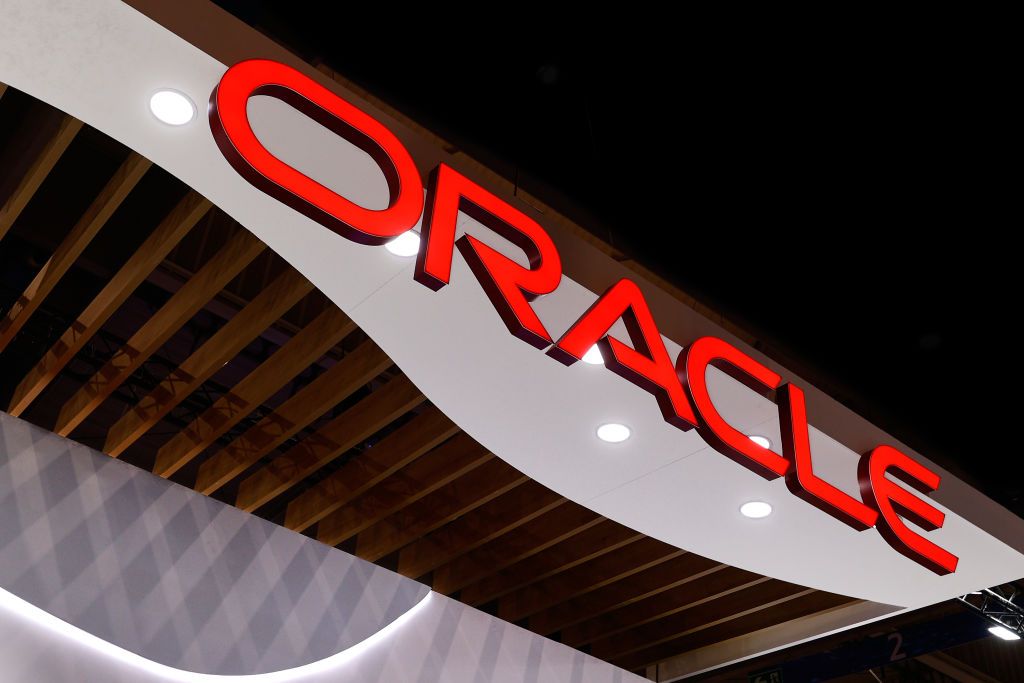Copyright fool

What happened According to a filing with the Securities and Exchange Commission dated October 21, 2025, Ascent Wealth Partners reduced its stake in Oracle Corporation (ORCL 0.91%) by 26,178 shares. The estimated transaction value was $6.64 million. The fund now holds 38,593 shares with a reported value of $10.85 million. What else to know This was a sell transaction. Oracle now represents 1.26% of Ascent Wealth Partners’ 13F assets under management. The fund's top holdings after the filing are: IWF: $75.13 million (8.7% of AUM)QQQ: $57.00 million (6.6% of AUM)AAPL: $38.90 million (4.5% of AUM)MDY: $37.93 million (4.4% of AUM)MSFT: $24.69 million (2.9% of AUM) As of October 20, 2025, shares of Oracle were priced at $277.18, up 59.7% over the year ending October 20, 2025, outperforming the S&P 500 by 43.55 percentage points over the same period. Company Overview Company Snapshot Oracle Corporation delivers enterprise software and cloud infrastructure to organizations worldwide, providing technology solutions across various industries. The company's strategy centers on expanding its cloud offerings and leveraging its extensive installed base to drive recurring revenue and long-term client relationships. Oracle's scale, comprehensive product portfolio, and focus on innovation underpin its competitive position in the technology sector. The company provides a broad suite of enterprise cloud applications, database technologies, middleware, and hardware systems, with flagship offerings including Oracle Fusion Cloud ERP, NetSuite, Oracle Database, and Java. Oracle generates revenue from cloud services, license support, hardware, and consulting. Its primary customers are large enterprises, government agencies, and educational institutions seeking scalable, secure, and integrated IT solutions. Foolish take When an investment firm decides to buy shares in a public company, the action suggests a bullish outlook. But the opposite isn't necessarily the case when shares are sold. For example, Ascent Wealth Partners' Q3 sale of Oracle stock could be for a number of reasons. One likely explanation is profit taking. Oracle's shares have soared this year on the strength of its success in the hot artificial intelligence sector. The stock hit a 52-week high of $345.72 in September, nearly triple the low reached just a few months earlier in April. The fact Ascent Wealth Partners sold some of its shares, but not all, suggests it was capturing its gains. Before the sale, Oracle stock was among the investment management company's top ten holdings. So Ascent could afford to trim its stake. If you own Oracle stock, don't take Ascent's action as a sign to shed shares. The AI market is continuing to see massive expansion. Forecasts estimate the industry will grow from $255 billion in 2025 to $1.7 trillion by 2031. This growth provides a tailwind to Oracle's business, so the ideal approach is to hold on to the stock. 13F reportable assets: Securities that institutional investment managers must disclose quarterly to the SEC if managing over $100 million.Assets under management (AUM): The total market value of investments managed on behalf of clients by a fund or firm.Quarterly average price: The average price of a security over a specific three-month period, often used to estimate transaction values.Top holdings: The largest positions or investments held in a portfolio, typically by market value.Outperforming: When an investment delivers higher returns than a benchmark index or comparable investments over a period.Flagship offerings: A company's most prominent or important products or services.Cloud services: On-demand computing resources, software, or storage delivered over the internet rather than on local servers.License support: Ongoing services and updates provided to customers who have purchased software licenses.Middleware: Software that connects different applications or systems, enabling them to communicate and share data.TTM: The 12-month period ending with the most recent quarterly report.



